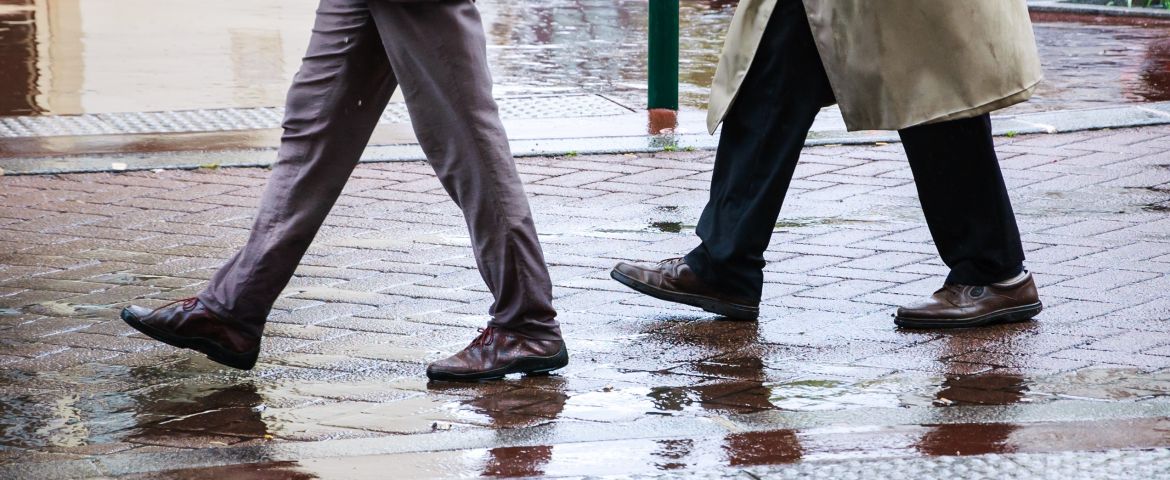While we are all ready to enjoy the May flowers, first we have to face the April showers. Rainy days not only make the surfaces slippery but visibility is often limited as a result of the weather. Plus, after the vicious freeze/thaw cycle winter presents, many of the roads and sidewalks are cracked or have mismatched surfaces. It’s very important to watch where you are walking during Spring’s rainiest days.
While no one wants to take a fall, it can be particularly problematic as we get older.
The Centers for Disease Control and Prevention estimates that in 2013, 2.5 million older adults visited the emergency room because of a fall-related injury, and the cost of medical treatment for injuries related to a fall was about $30 billion. Some falls only result in minor injuries or discomfort, but many times they can cause bigger, more problematic issues.
With statistics like these, or having experienced a fall themselves, it is no surprise that many people over 65 are fearful of falling. But, you should try to overcome this fear and not let it hold you back from enjoying your daily life. Unfortunately, some people suffering from this fear reduce their activity, which can negatively affect their physical and social well-being.
Unfortunately, some people suffering from this fear reduce their activity, which can negatively affect their physical and social well-being.
Falls are not a “normal” part of aging. You can take steps to be proactive and prevent falls. Follow these five steps to stay sturdy on your feet.
1. Talk to your doctor. Let him or her know about your concerns and ask for suggestions to help your specific situation. Also ask how your health conditions, or any medications you may be taking, could affect your balance.
2. Get regular exercise. Exercise can improve your flexibility and strength, as well as help you maintain your sense of balance. A special exercise program called Tai Chi has been proven to be especially helpful in these areas.
3. Have your vision checked every year. The better you can see potential obstacles or trip hazards, the more likely you are to avoid them. If you need glasses, get them. And if you already have glasses, make sure you wear them.
4. Set your environment up for success. Get rid of clutter and things that might become trip hazards, like throw rugs. Install handrails to give extra support where you might need it. Install good lighting, especially in stairways, and use nightlights.
5. Take extra precaution during rainy months. When it rains, doing errands during the day will help you more easily identify slippery spots. Wet shoes and wood floors are a recipe for disaster; use a door mat and take off your shoes as soon as you enter the door to avoid slipping.
Still feeling a little overwhelmed by the thought of falling? There are programs out there that can help. Specifically, the Agency on Aging and the National Council of Aging has created a program titled “A Matter of Balance” that aims to reduce the fear of falling and increase activity levels in older adults. These classes, and others like it, are offered across Michigan. Search online for specifics, or contact your Area Agency on Aging to see what is available in your area.
Of course, not all falls are preventable. It may be helpful to regularly keep your cell phone within reach so you can contact someone for help if needed. Some people appreciate the comfort of having an emergency service device available. While there is usually a cost for this service, you might feel like it’s well worth the investment depending on your situation.
Don’t just assume falls are in your future. Be empowered and actively participate in your personal health journey.


